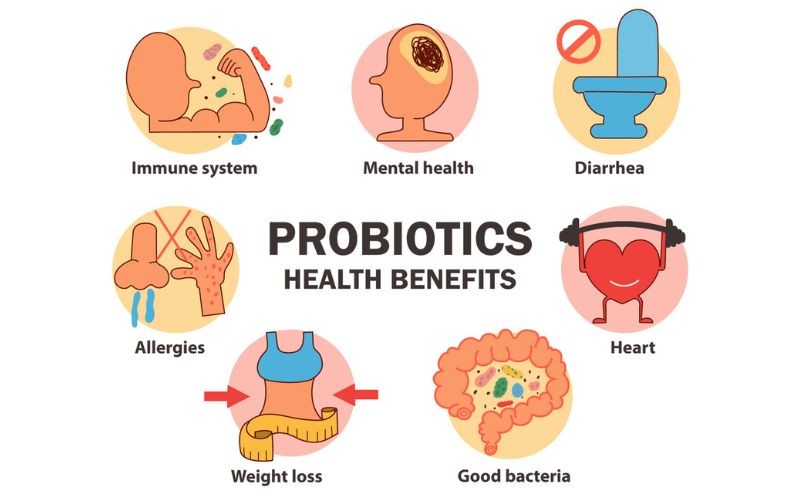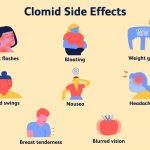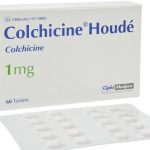
Contents
Signs You Need Probiotics
Probiotics are beneficial bacteria that offer multiple health benefits. Signs you need probiotics include trouble sleeping, mood swings, frequent health issues, and other problems.
Probiotics are plentiful in your body, with bacteria present in the same quantity as your body’s cells at a 1:1 ratio. Most of these bacteria reside in your gut and are harmless, while some are even beneficial for your health.
Probiotics are commonly taken as supplements to enhance the microbiome of the gut. Good bacteria like probiotics are believed to provide various health benefits, such as weight loss promotion, improved digestive and immune systems, and healthier skin.
Probiotics are living microorganisms that offer multiple health benefits when consumed. However, scientists are still uncertain about the specific strains that provide these benefits.
Some yeasts can also act as probiotics. Other gut microorganisms, including fungi, viruses, helminths, and archaea, are currently under study.
You can obtain probiotics from fermented foods or supplements. Examples of probiotic-rich foods include kimchi, kefir, yogurt, and tempeh.
The most common probiotic bacteria include Bifidobacteria, Lactobacillus, Saccharomyces, Escherichia, Streptococcus, Bacillus, and Enterococcus. Each genus consists of different species, and each species is made up of many strains. Probiotic supplements typically specify the strain, species, subspecies, and strain code.
Different probiotics cater to specific health conditions, so it’s important to choose the right probiotic supplements. Some products even combine different species, creating multi-probiotics or broad-spectrum probiotics.
Supplements that contain both probiotics and prebiotics are known as synbiotics.
It’s crucial to understand that probiotics and prebiotics are different. Probiotics are friendly and beneficial bacteria in your gut, while prebiotics are carbohydrates found in dietary fibers.
6 Signs You Need Probiotics
Probiotics have symbiotic relationships with other microorganisms in your gut, urinary tract, mouth, and skin. They are associated with several health benefits, such as improved cardiac health, regulated blood pressure, enhanced skin health, reduced inflammation, and more.
Probiotics help maintain a balanced microbiome by regulating unhealthy bacteria. If there’s a probiotic deficiency, harmful microbes, including yeast and fungus, can cause various health issues.
The primary signs of probiotic deficiency may manifest on your skin and digestive system, although these are not the only indicators. Here are some signs that you may need probiotics:
Difficulty sleeping
Your gut microbiome can directly influence your brain through the vagus nerve. The brain-gut-microbiome axis is responsible for the secretion of tryptophan, an amino acid that aids the conversion of serotonin (relaxing hormone) into melatonin (sleep hormone).
Since serotonin is primarily produced in the gut, reduced probiotic levels can lead to decreased serotonin production and elevated cortisol (stress hormone) levels.
If your body lacks balanced melatonin levels, your brain may struggle to calm down at night, resulting in sleeplessness. Difficulty sleeping could be a primary sign of probiotic deficiency.
Increased mood swings
Your gut health and probiotic levels are also linked to mood disorders, such as stress, anxiety, and depression. The brain-gut connection can impact your mental health by affecting mood-related hormones and neurotransmitters.
Serotonin and dopamine are essential hormones for regulating mood. However, since they are primarily secreted in the gut, an unhealthy microbiome may produce them in insufficient quantities.
Insufficient serotonin levels can lead to increased cortisol release, causing anxiety and panic attacks.
Studies have shown that probiotics can significantly improve symptoms of anxiety and depression in participants.
Frequent health issues
A well-balanced and healthy gut microbiome is closely related to a strong immune system. The good bacteria in your body fight pathogens in various ways, such as by outnumbering them or strengthening the gut.
Probiotics also regulate your inflammatory response, enabling your body to fight pathogens effectively and preventing the immune system from attacking your own systems and causing allergic disorders.
If you frequently catch the flu or colds, increasing your intake of probiotics may be beneficial.
Bowel disorders
Unbalanced gut microbiome often leads to diarrhea, constipation, and infrequent elimination. While short-term diarrhea can be caused by food poisoning or gastroenteritis, it can also indicate a lack of friendly bacteria in your gut.
Diarrhea can make it difficult for your body to eliminate waste, and it may be a result of harmful bacteria overwhelming your gut. Probiotic supplements can help treat common bowel issues, including diarrhea and constipation.
Probiotics are even considered a natural treatment for Irritable Bowel Syndrome (IBS).
Weight gain
Research suggests that obese individuals have different gut bacteria compared to lean individuals. While more studies are needed, specific probiotic strains have been linked to weight loss.
Probiotics help break down fats into simpler forms that cells can utilize for energy.
If you’re continuously gaining weight, it’s possible that your body has imbalanced probiotic levels. Probiotic supplements can be effective in reducing body weight, fat percentage, and fat mass. However, it’s advisable to consult with a nutritionist before starting any supplements.
Skin disorders
Your skin naturally contains different types of bacteria. Beneficial bacteria prevent harmful bacteria from settling in your pores and causing issues like acne, eczema, and rosacea.
However, antibacterial products used to treat acne can also suppress or kill probiotics, leaving your skin susceptible to yeast and fungal infections.
Topical treatments using probiotics have shown effectiveness in treating acne, controlling rosacea flare-ups, and managing eczema.
A study found that babies are less likely to have eczema when their mothers consume probiotics before and after delivery.
If you frequently experience acne or skin inflammation, consulting with a doctor about probiotics may be beneficial.
QUESTION
Are Probiotic Supplements Safe?
Some individuals may experience abdominal issues, such as gas and digestion difficulties, when first starting probiotic supplements. However, these symptoms generally subside as the body adjusts to the supplements.
If you have a weak immune system, such as with HIV or AIDS, it’s important to consult your healthcare provider before taking probiotic supplements. They can assess any underlying health conditions and provide appropriate advice.
Sources:
1. Behavioral Brain Research: "Serotonin, tryptophan metabolism and the brain-gut-microbiome axis."
2. Clinical & Translational Immunology: "Embracing the gut microbiota: the new frontier for inflammatory and infectious diseases."
3. Expert Opinion on Drug Safety: "A systematic review of the safety of probiotics."
4. Fermentation: "Functional Role of Probiotics and Prebiotics on Skin Health and Disease."
5. International Journal of Neuroscience: "Cortisol decreases and serotonin and dopamine increase following massage therapy."
6. Johns Hopkins Medicine: "The Brain-Gut Connection."
7. Journal of Clinical Medicine: "Potential Role of the Microbiome in Acne: A Comprehensive Review."
8. Microorganisms: "Beyond Just Bacteria: Functional Biomes in the Gut Ecosystem Including Virome, Mycobiome, Archaeome and Helminths."
9. National Institutes of Health (NIH): "Probiotic skin therapy improves eczema in children."
10. Nature Reviews Gastroenterology & Hepatology: "The International Scientific Association for Probiotics and Prebiotics consensus statement on the scope and appropriate use of the term probiotic."
11. Neuron: "Gut Microbe to Brain Signaling: What Happens in Vagus…."
12. Nutrients: "Effects of Probiotics, Prebiotics, and Synbiotics on Human Health," "The Interplay between the Gut Microbiome and the Immune System in the Context of Infectious Diseases throughout Life and the Role of Nutrition in Optimizing Treatment Strategies."
13. Nutrition in Clinical Practice: "Effects of Gut Microbes on Nutrient Absorption and Energy Regulation."
14. Nutrition Today: "The Gut Microbiome and Its Role in Obesity."
15. PLOS Biology: "Revised estimates for the number of human and bacteria cells in the body."
16. The Gut-Brain Axis: "Influence of Microbiota on Mood and Mental Health."
17. The International Journal of Molecular Sciences: "Impacts of Gut Bacteria on Human Health and Diseases."
18. The Journal of Gerontology Series A: Biological Sciences and Medical Sciences: "Melatonin and Tryptophan Affect the Activity–Rest Rhythm, Core and Peripheral Temperatures, and Interleukin Levels in the Ringdove: Changes With Age."
19. Tropical Life Sciences Research: "Beneficial Properties of Probiotics."
20. Whitehead Institute For Biomedical Research: "Pathogenic Yeasts and Fungi: A Growing Health Concern."
21. World Gastroenterology Organisation Practice Guideline: "Probiotics and prebiotics."


